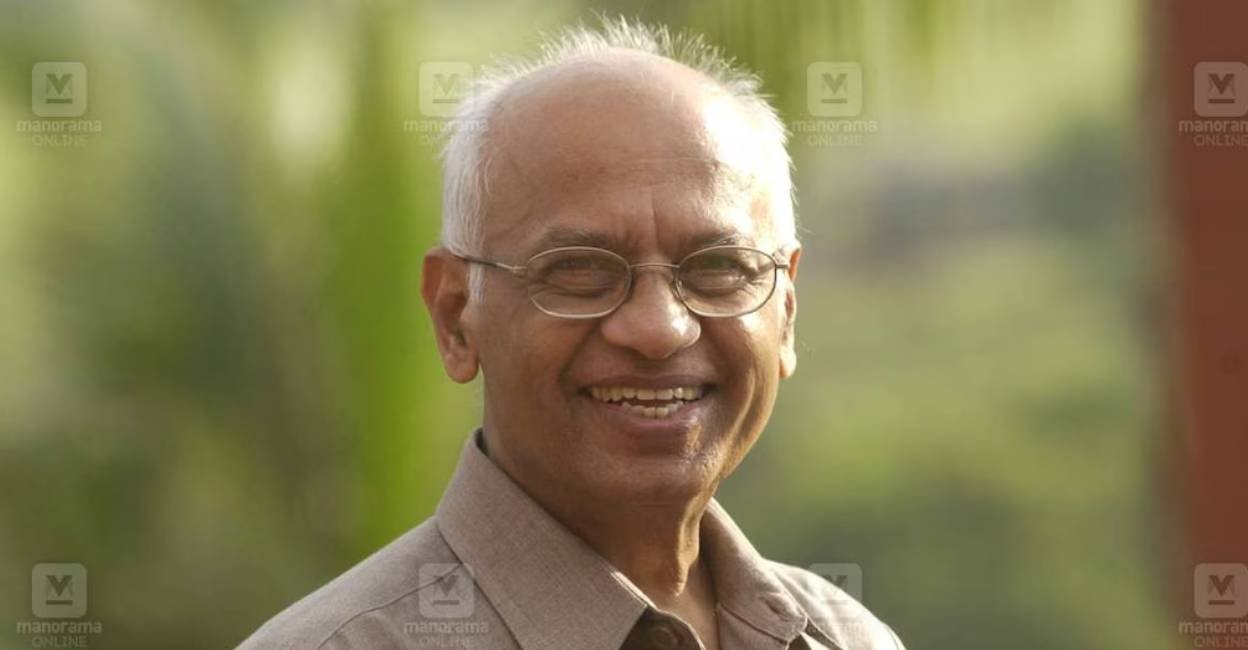Thiruvananthapuram: Dr MS Valiathan’s contributions to society and the medical field are immense. For instance, it was his medical team that eradicated ‘Endomyocardial Fibrosis’ in Kerala, a heart disease that was common in the state in the past and claimed many lives. Dr Valiathan, who passed away on July 17, was also instrumental in developing Sri Chitra Tirunal Institute of Medical Technology (SCTIMST), Thiruvananthapuram, into one of India’s premier medical facilities. Moreover, SCTIMST, under his leadership, developed world-class heart valves, which enabled doctors in Kerala to overcome all obstacles in treating cardiac diseases in the state.
Dr Valiasan was more interested in developing medical technologies than practicing medicine, says Dr Asha Kishore, former director of SCTIMST, and after he left SCTIMST he studied Ayurveda and founded a new scientific field called Ayurvedic biology, says Dr V Raman Kutty, a well-known health expert.
New Models
When Dr. Valiasan took over the reins of SCTIMST, there were no independent government hospitals in Kerala. He developed SCTIMST into an independent research institute outside the purview of medical colleges and the state health department.
“Those days, patients used to visit hospitals with established doctors. But under Dr Valiathan, patients started coming to Sri Chitra due to the reputation of the facility,” says Dr Ramankutty, who was director of the Achuta Menon Centre under SCTIMST.
“Dr Valiathan ensured that the doctors at Sri Chitra Hospital were well-paid and could spend their entire time treating patients at the hospital rather than going into private practice. It was a novel idea then. Even today, such hospitals are rare,” says Dr Ramankutty.
Dr Valiathan was appointed director of Sri Chitra on the invitation of the then Kerala Chief Minister C Achuta Menon. “When he took over as director, SCTIMST had just a few small buildings and minimal staff. It was his foresight that took the institute to the level it is at today,” adds Dr Raman Kutty.
Dr Asha says that Dr Valiathan used to visit Sri Chitra regularly even after his retirement. “He was the chairman of the research committee of the institute’s biomedical technology department and regularly attended its meetings which were held every three months. Dr Valiathan took the initiative to induct leading scientists as members of the research committee. He was also the one who inaugurated Sri Chitra’s new campus at Poojappura,” says Dr Asha.
Advancing medical technology
Appointed a “National Professor”, Dr. Valiathan was keen to provide the best medical care to the nation and also to develop indigenous medical technologies. Through his efforts, Sri Chitra became a top-class research institute and began manufacturing artificial valves and blood bags during his tenure. The technology involved in their manufacture was imported before Sri Chitra developed its own methods. Dr. Valiathan took the position that the technology should be developed in India as India had the scientists required for the job. “Shri Chitra’s heart valves are the best in the world. Besides valves, the institute now manufactures stents, bioprosthetic heart valves and other devices for the heart and brain,” says Dr. Asha.

“India did not have a medical industry. Dr Valiathan founded it. SCTIMST started working on valves in 1976 and developed them by the late 1980s. Shri Chitra not only developed the valve, but also created a model to market it, with the help of the private sector. Shri Chitra also developed blood bags in collaboration with private companies. In the process of manufacturing these devices, which were not available in India, Shri Valiathan showcased Kerala’s excellence to the entire world,” said Dr Raman Kutty.
Learn Sanskrit and Ayurveda
Talking about Dr Valiathan’s contribution to research, Dr Raman Kutty recalls his role in curbing endomyocardial fibrosis. “The number of patients suffering from this heart disease was disproportionately high in Kerala. It was not seen in any other state in India, but it had been reported from Uganda and Brazil. The cause of this disease was still unknown and Dr Valiathan and his team conducted research. They came up with some theories based on their findings and the scientific community took note. Today, the disease has not been reported in Kerala,” he says.
Another contribution of Dr. Valiathan was to prove that even busy doctors could engage in meaningful research. The research model he implemented at Sri Chitra was later replicated at the Regional Cancer Centre (RCC) in Thiruvananthapuram and other hospitals. “Today, a majority of research papers in the medical field in Kerala originate from SCTIMST and RCC,” Dr. Raman Kutty points out.

After retiring from SCTIMST, Dr. Valiathan learned Sanskrit from Ayurvedic Rishi Raghava Perumal and reviewed the Ayurvedic texts Charaka Samhita and Ashtanga Hridayam and published essays on them. He also did not stay in Kerala after his retirement but moved to Manipal in Karnataka when a new university was established there. In 1994, Dr. Valiathan became the Vice-Chancellor of Manipal University and continued to work there as he liked the place. After his retirement from Manipal, the central government conferred on Dr. Valiathan the rare title of National Professor.
Ayurvedic Biology, the science that integrates Ayurveda and modern medicine, was established by Dr. Valiathan, who continued to put many of the same innovative concepts into practice even after his retirement and continued his medical research and writing in Manipal.

